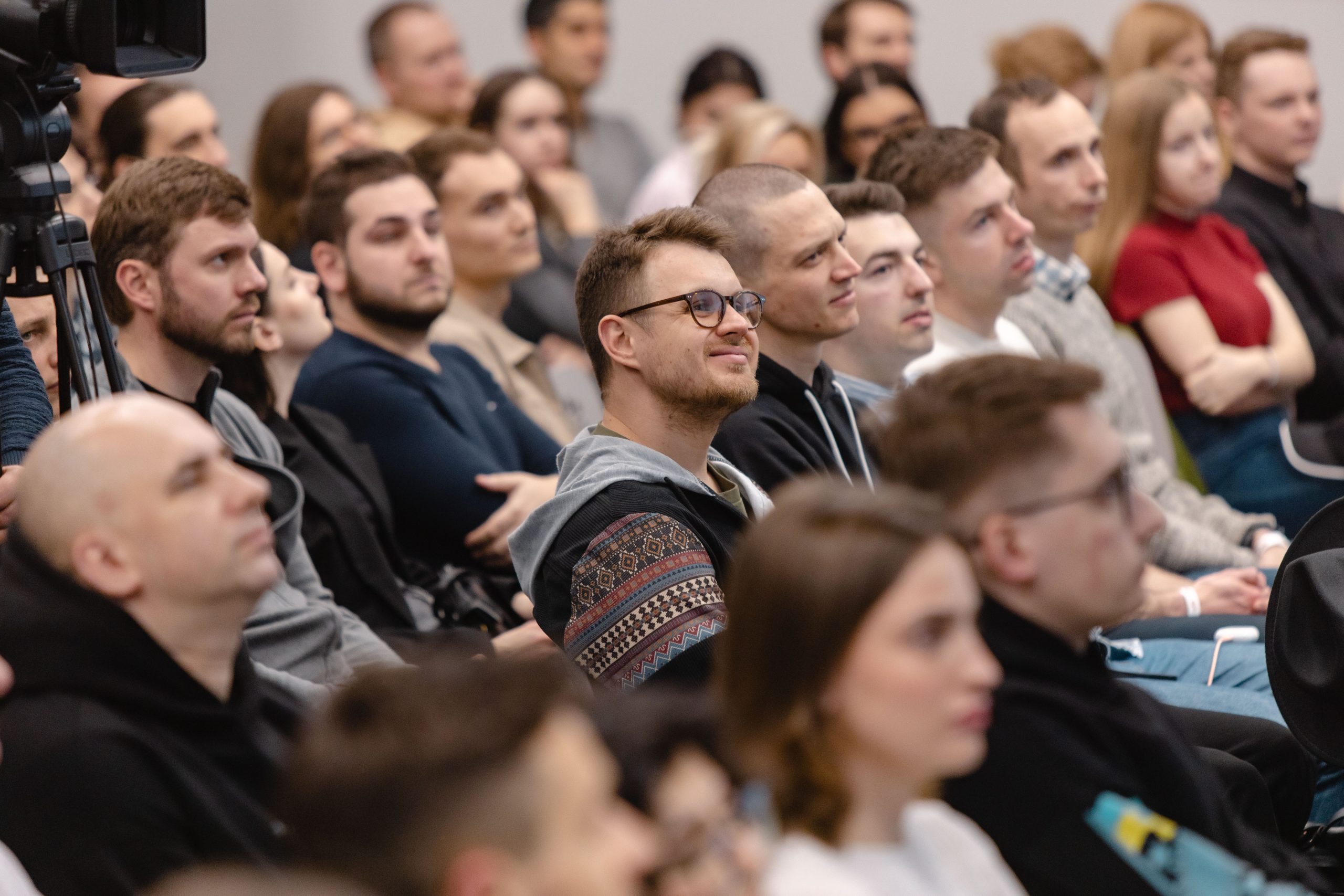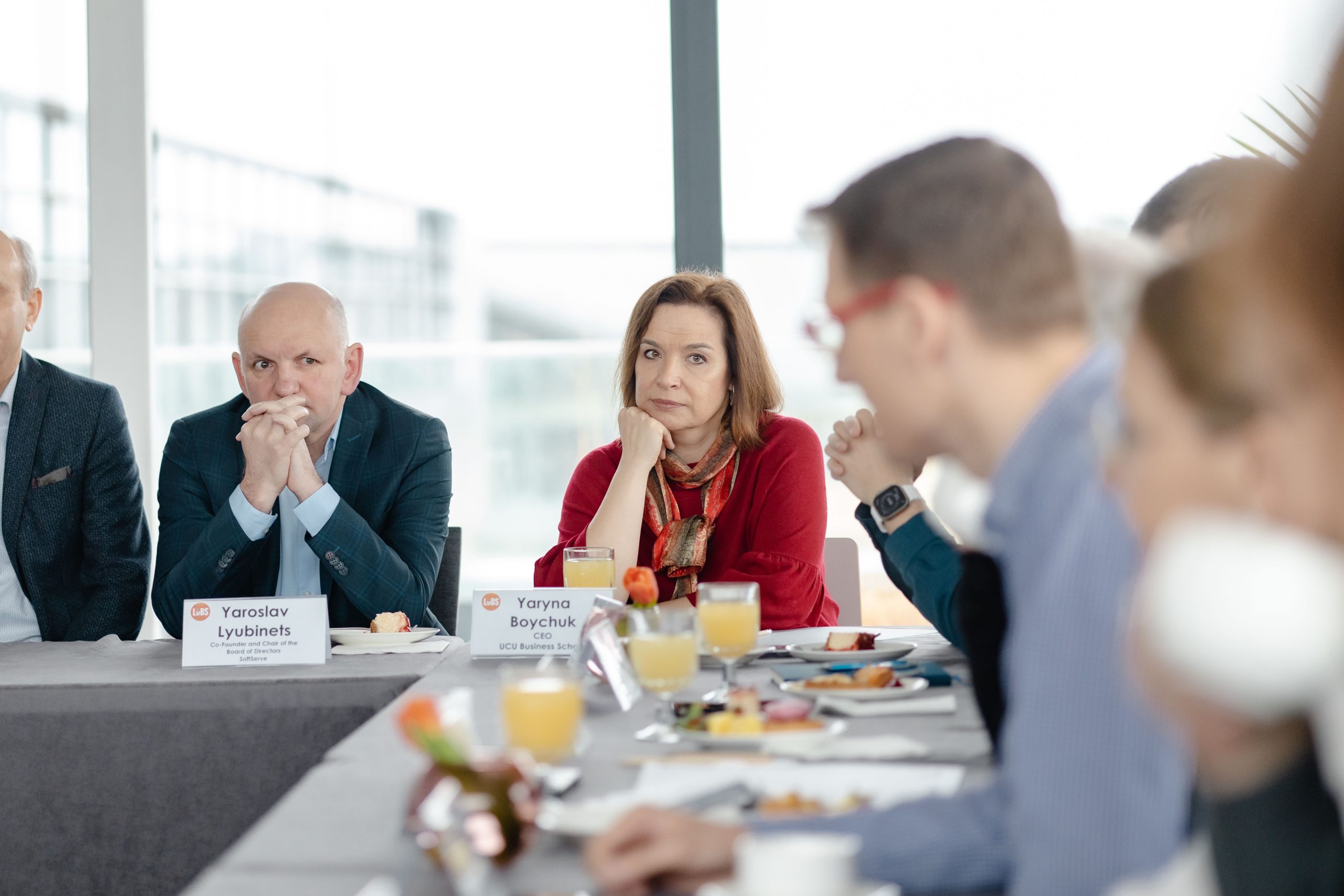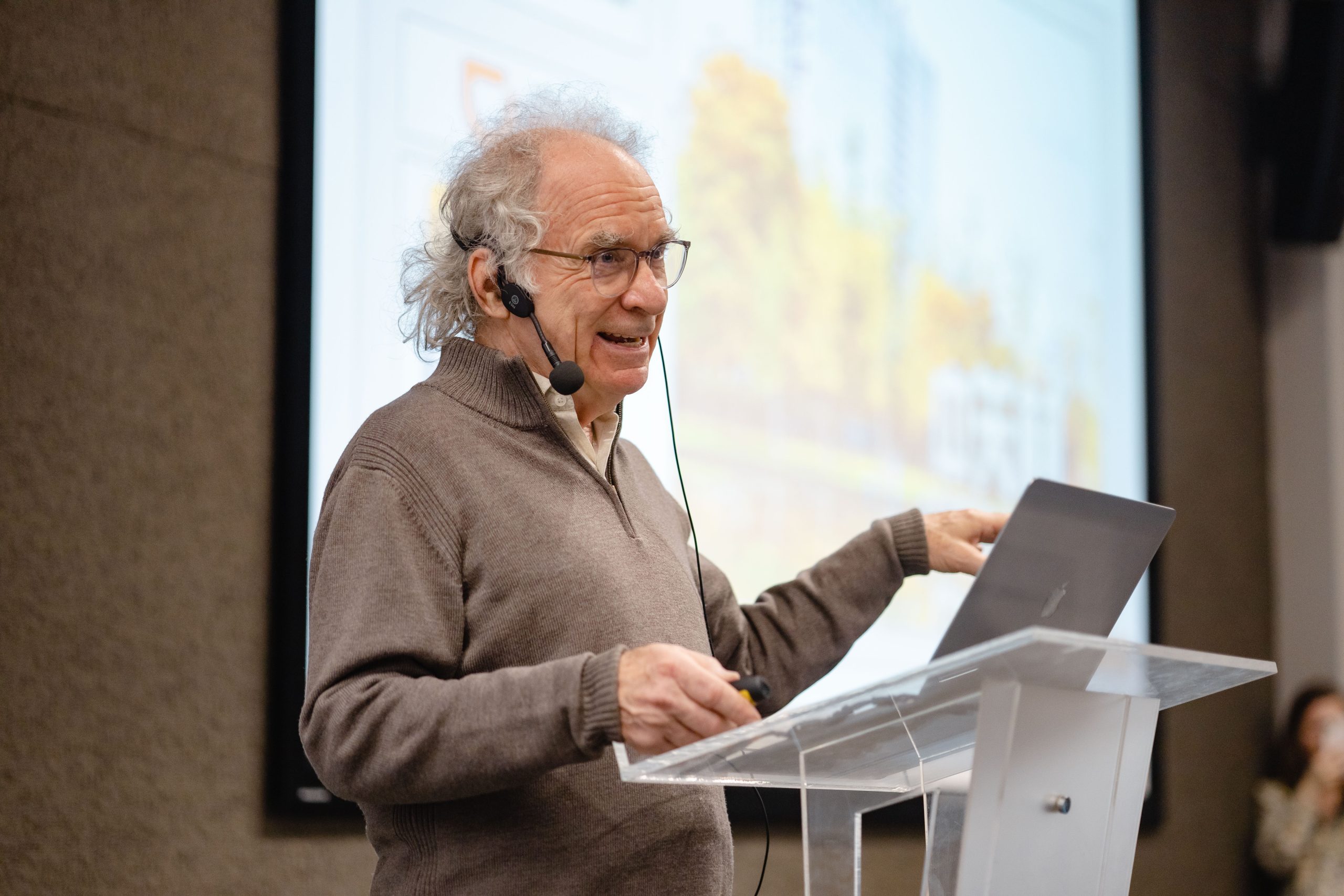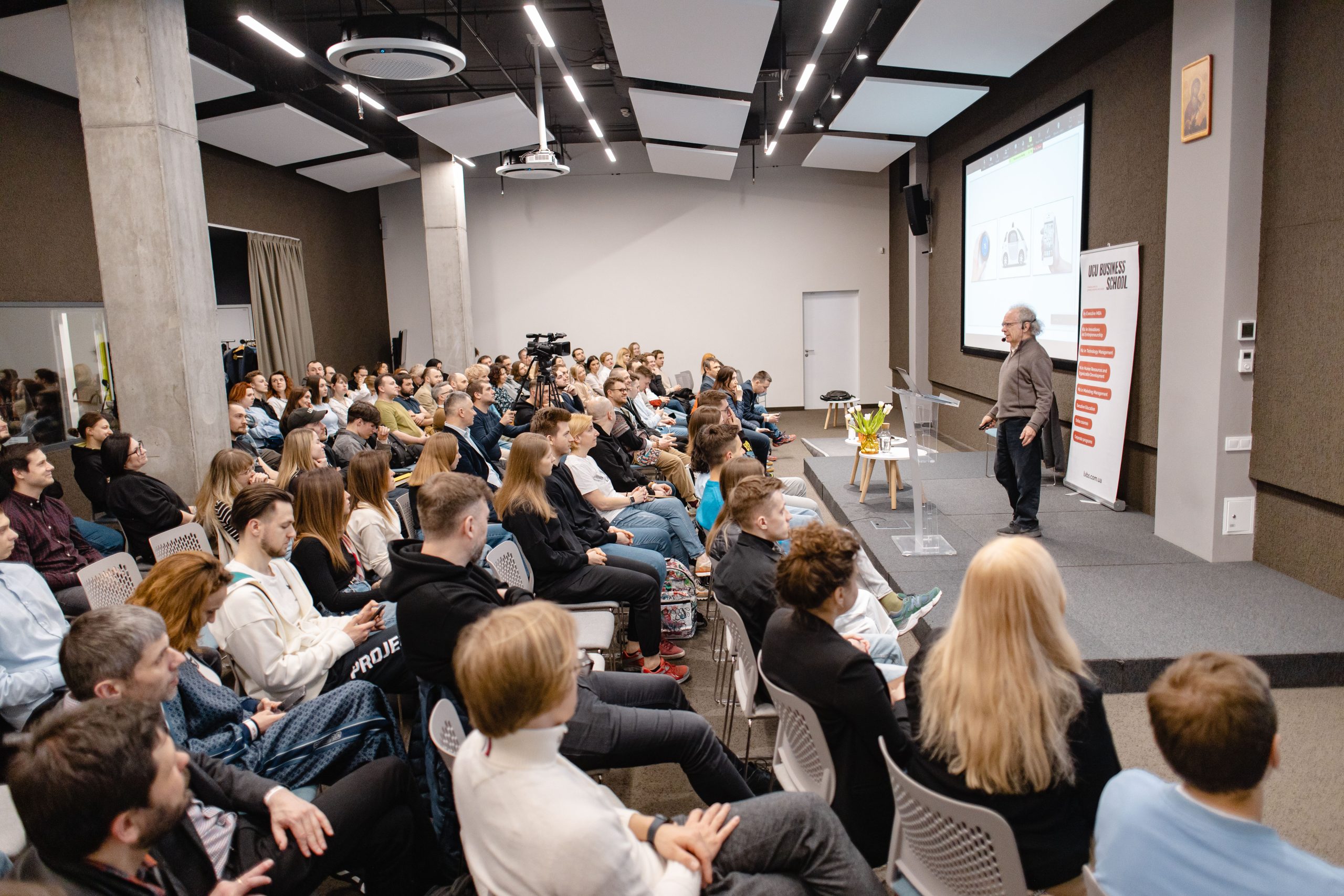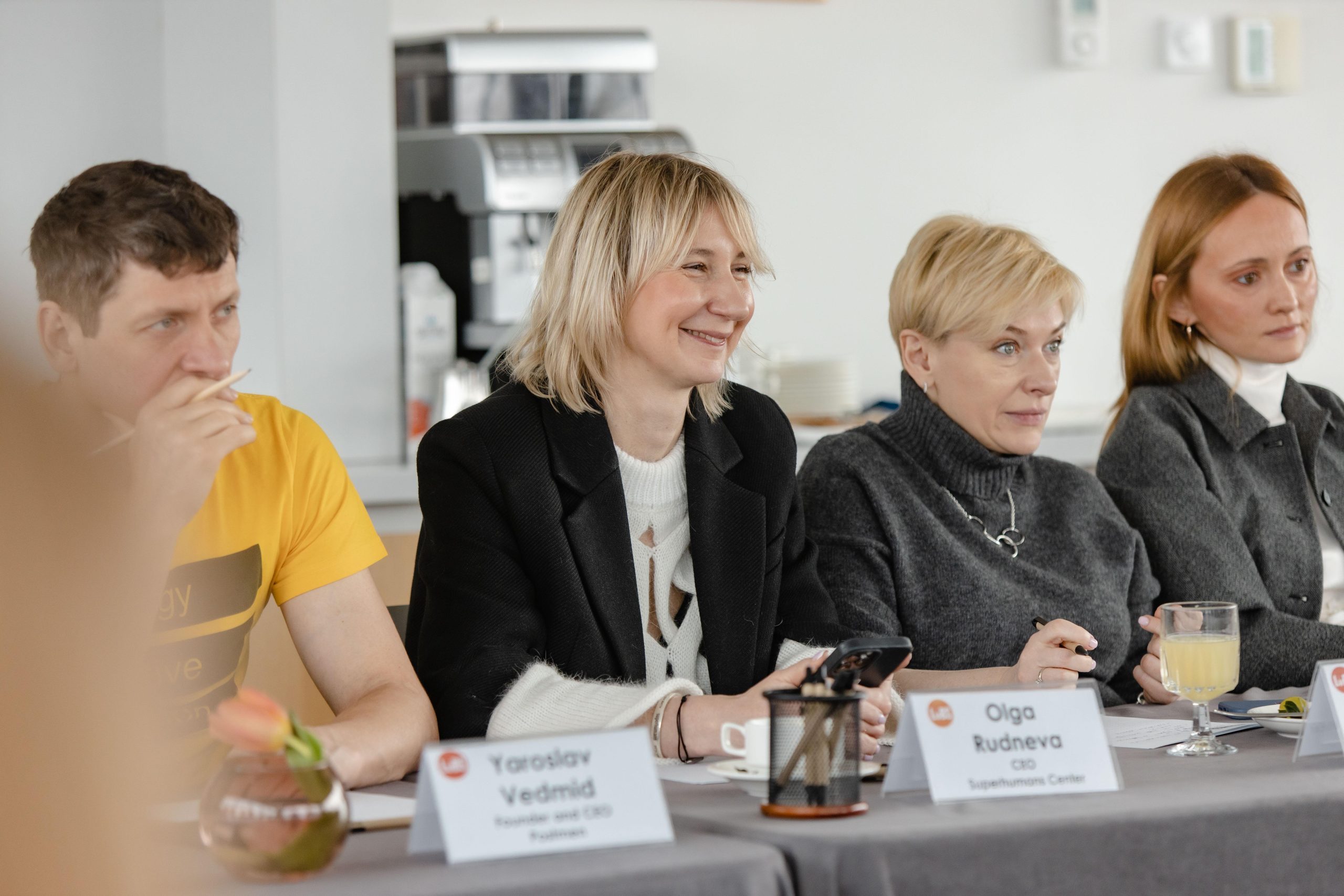On March 23-25, the UCU Business School hosted charity events: lecture «Ecosystems of Innovation: Lessons to be Learned and Unlearned» and business breakfast «Brain Drain in Ukraine: Finding the Solution by Using Design Thinking». The guest speaker was Barry Katz, Professor at Stanford University and California College of the Arts in San Francisco. In addition to his academic affiliations, Barry worked for more than twenty years with IDEO, Inc., the global design and innovation consultancy, where he conducted front-end research in support of IDEO project work. He consults with governments, companies, and academic institutions worldwide on issues pertaining to design and innovation. During the events, Barry shared with the audience his research in the field of innovation and the role Design Thinking plays in it.
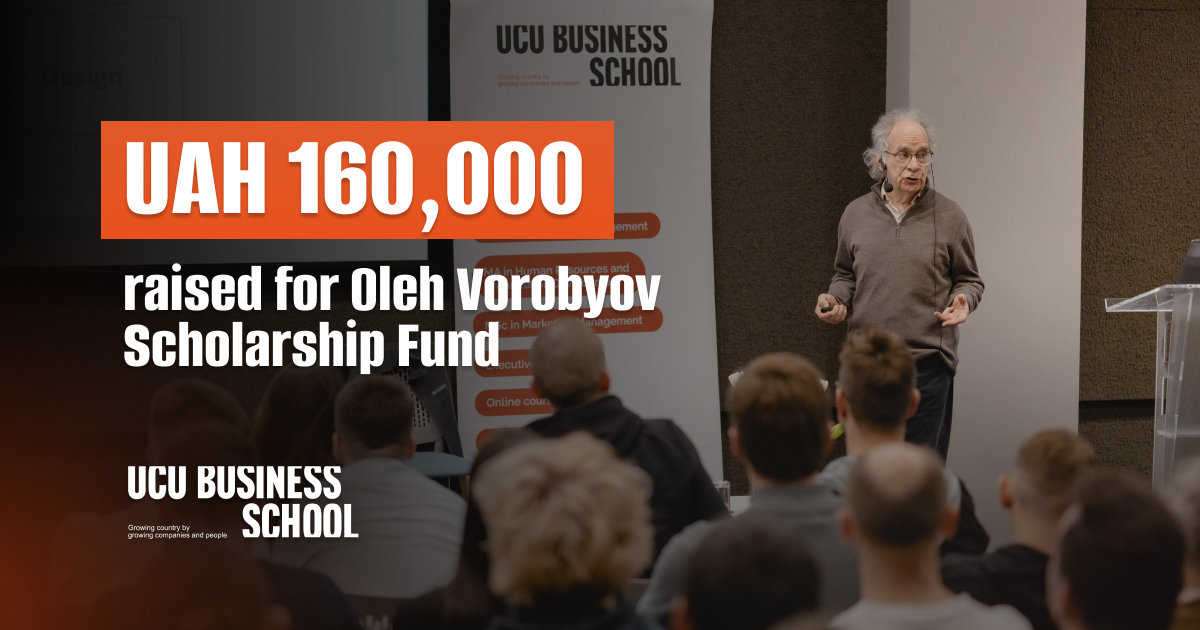 During the event «Ecosystems of Innovation: Lessons to be Learned and Unlearned», Barry shared with the audience his research in the field of innovation and his thoughts on how to take new steps to create innovative projects by studying the experience of the past years. Barry spoke about the history of Silicon Valley design and also about how Ukraine can capitalize on these strengths and position itself as a major player in the innovation economy.
During the event «Ecosystems of Innovation: Lessons to be Learned and Unlearned», Barry shared with the audience his research in the field of innovation and his thoughts on how to take new steps to create innovative projects by studying the experience of the past years. Barry spoke about the history of Silicon Valley design and also about how Ukraine can capitalize on these strengths and position itself as a major player in the innovation economy.
Barry presented the audience with a model of product development from the creation of new technologies to the impact aspects of the product on society: «The microprocessor revolution that we associate with companies like Intel and National Semiconductor, and a few others back in the seventies, began to change the landscape of technology and what was driving it. I have met a number of those pioneers. They are elderly now, but some of them are still alive. And they all, almost without exception, became fabulously wealthy. Like you cannot believe. It was about inventing a new technology. And they know, the passion, the drive, the motivation, sometimes is few. It was motivated by bringing a new technology idea into existence a decade later. And this is now the decade of Steve Jobs and that whole generation was the microprocessor. A computer on a chip, but on a chip, doesn’t really mean much to most people. It becomes interesting when you can put it in a box,» – said Barry.
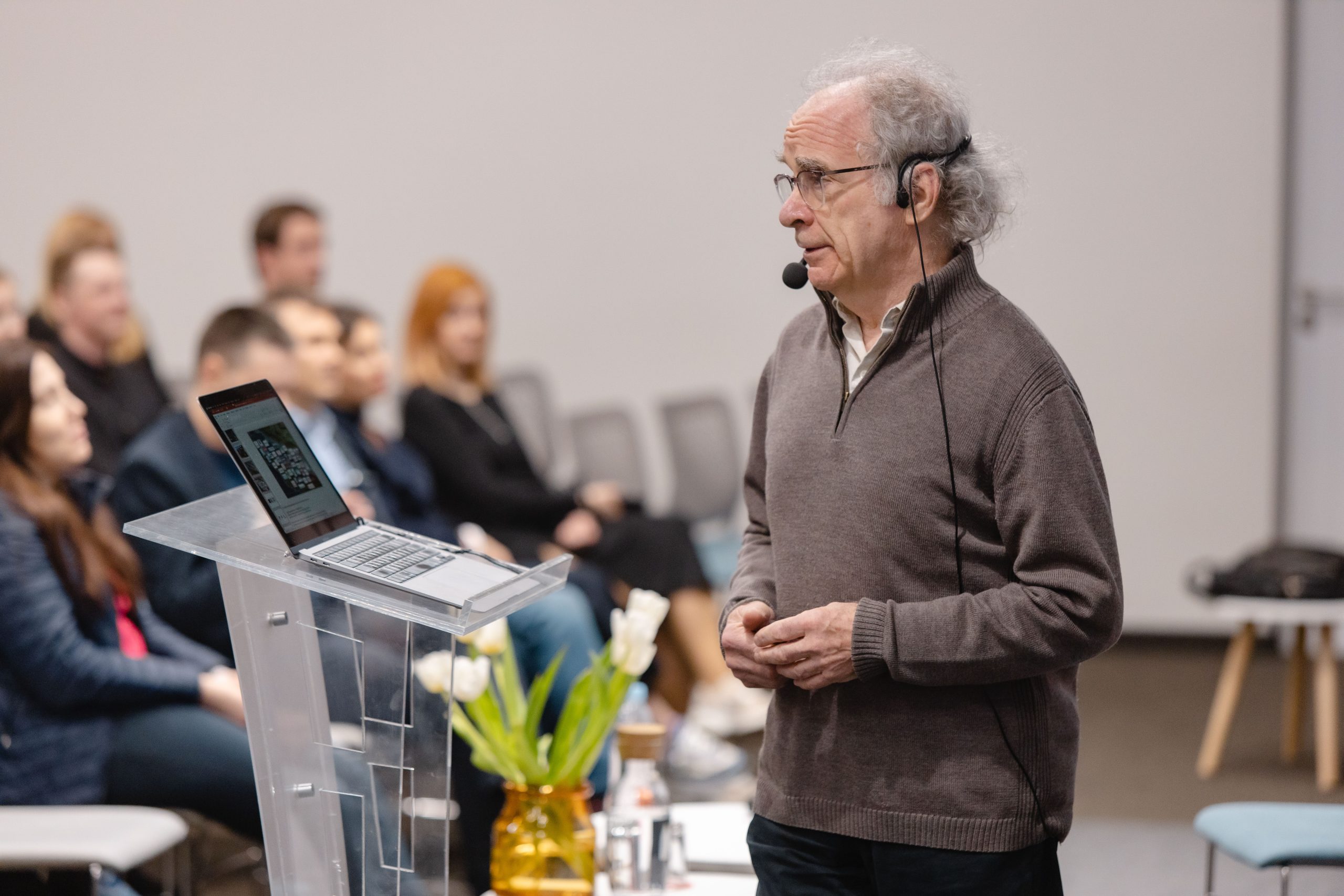
Barry Katz noted that the role of design in the innovation ecosystem is gradually changing and globalizing. If design used to be just one of the links of the product, now it is design that determines the main operational processes of new technologies in the market: «Designers have taken on a set of new responsibilities themselves. The interesting thing that’s going on is that designers used to busy themselves smoothing fonts on the screen or the radius of my. It’s time for us to move on to more complex problems. So I know designers today who are working on pediatric obesity have a design problem. American children are fat and the assumption when you take your kid to the 1st medical check up at the age of three or four or five is that the kid will be overweight. Dealing with that is a design problem. Dealing with teen pregnancy in East Africa as a design problem. Dealing with urban violence in the United States as a design problem. Dealing with the post war reconstruction of Ukraine as a design problem».
UCU Business School hosted a charity business breakfast with top-business leaders and government officials «Brain Drain in Ukraine: Finding the Solution by Using Design Thinking». The guests of the event, among whom were LvBS Alumni, had the opportunity to talk over breakfast with Barry Katz about the problem of the outflow of personnel from Ukraine and discussed how design thinking methods can help to find solutions. Among the guests of the event were government officials, owners and top managers of well-known Ukrainian companies: SoftServe, GlobalLogic, Enzym, PryvatBank, Lviv Regional Administration, Superhumans Center, USAID, Sambay and others.
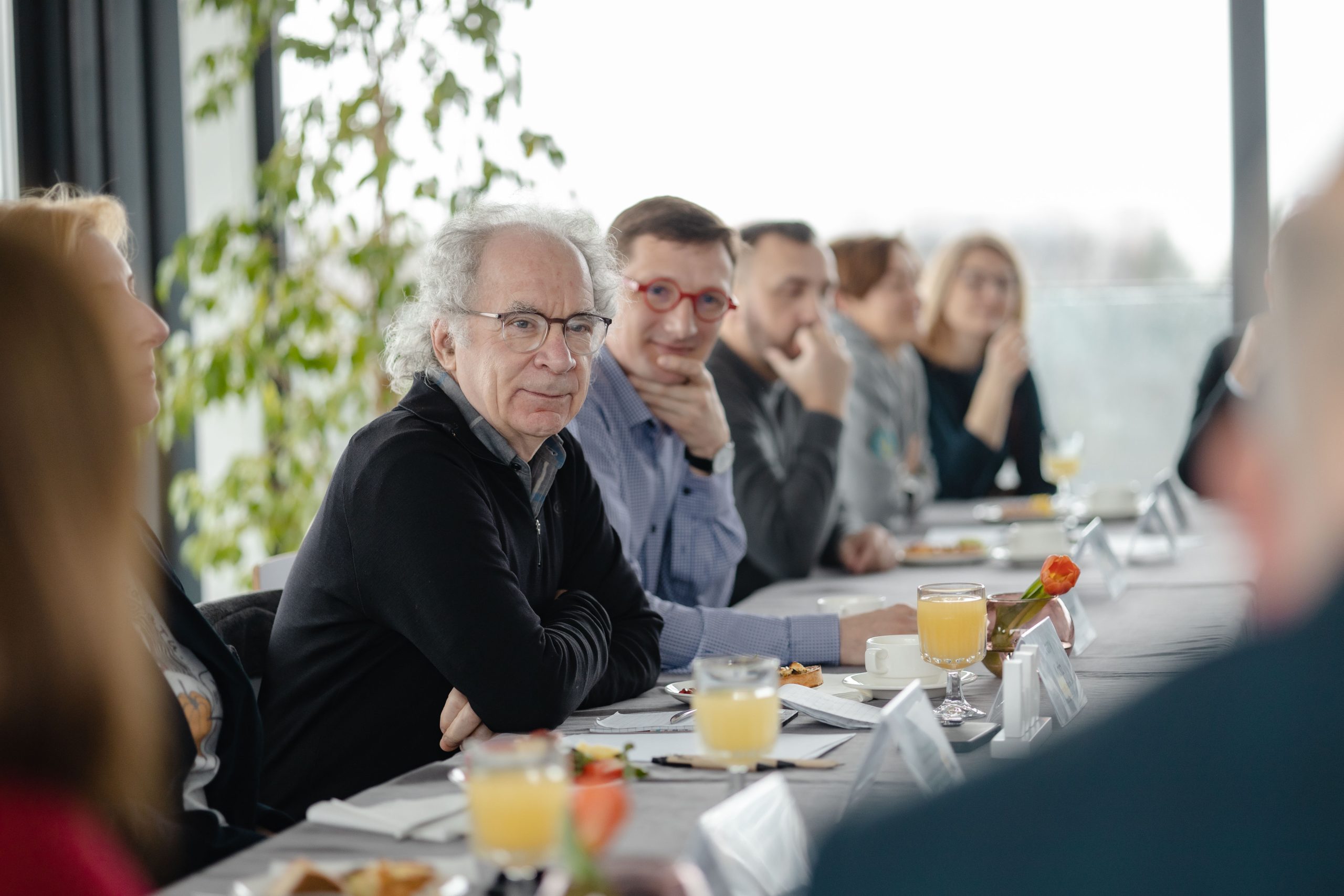
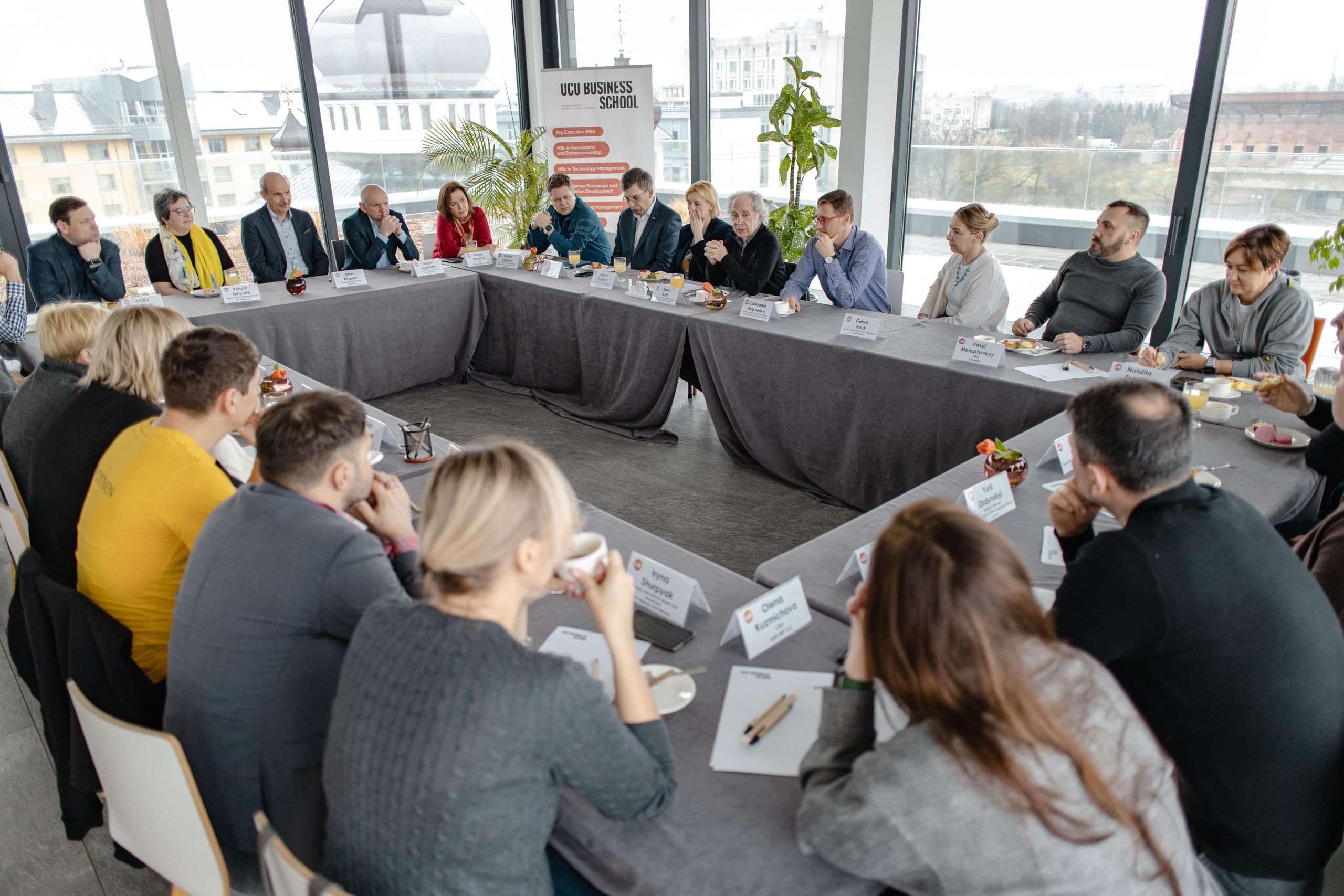
«The «Brain Drain» problem in Ukraine exists on 2 levels and each of those levels offers an opportunity. One is bringing people back who have left Ukraine because of the war. And we talked and we had all kinds of interesting ideas about how to create incentives having to do with quality of life in Ukraine, which is very, very high, the possibility of tapping into a cultural loyalty. And the second thing is there is a reality that many people will remain abroad: either for a long term or permanently. I grew up in Chicago, which has one of the largest Ukrainian cities in the world. It’s actually called Ukrainian village. So that’s an old piece of the diaspora. And now we already have a third generation of Ukrainians who will be abroad. We need to know how to use that as a global network as Ukraine moves into the next era is the second part of the challenge,» said Barry Katz, professor at Stanford University and California College of the Arts.
«We talked to Barry Katz about what concerns society – «winning the war, losing the battle at home to corruption, democracy backslide – not getting the victory», and that it is a time when not only the state needs to rebuild, but it is time for every Ukrainian to take responsibility. During breakfast, we also discussed the involvement of veterans, the return of Ukrainians, and new modalities of interaction with the «new Ukrainian diaspora». One of the calls for return should not only be providing housing to those who have lost it, creating jobs for temporarily displaced persons in their places of residence and employment, and educating those whom we seek to return, but also “this is your chance to do something good, not just good, but great, that you are returning to your culture and country, which you can change.» And, of course, all of this should be accompanied by various incentive instruments. Returning to Ukraine, for many, is not just about making ends meet abroad, but a much higher level of life and comfort at home. I believe that it is very important that we are now interesting not only because of the war, and technologies can be tested on us, but by helping us, countries are helping themselves because societies are changing, and we can offer not only investment opportunities, but also new models and meanings,» said Natalia Petrova, Project Manager of USAID.
«It was valuable to me that the event was attended by representatives from different spheres: government, corporate sector, etc. We all seem to be different, but we see the same big problem of Brain Drain in Ukraine. Once we’ve identified the initiatives, we need to move on to concrete actions,» said Olena Kuzmichova, CEO of Self-ERP LLC, UCU Business School Alumna.
«Brain drain» has become the main problem for Ukrainian businesses in the last few years. Ukrainian professionals have high-quality training that meets the needs of the international market, and foreign companies find it more profitable to hire Ukrainians because it requires less financial expenditure, while in Ukraine there is a shortage of business (especially small and mid-sized business) due to instability, high risks, and a lack of resources. During the discussion, the participants of the event shared their thoughts on the problem of the outflow of personnel from Ukraine and discussed how design thinking can help to find solutions to the problem.
During the charity events, we managed to raise UAH 160,000 for the Oleh Vorobyov Scholarship Fund. We thank everyone who joined the charity initiative and made a contribution. You can support the fund by following the link: https://supporting.ucu.edu.ua/en/donate/?order=oleg_vorobyov
